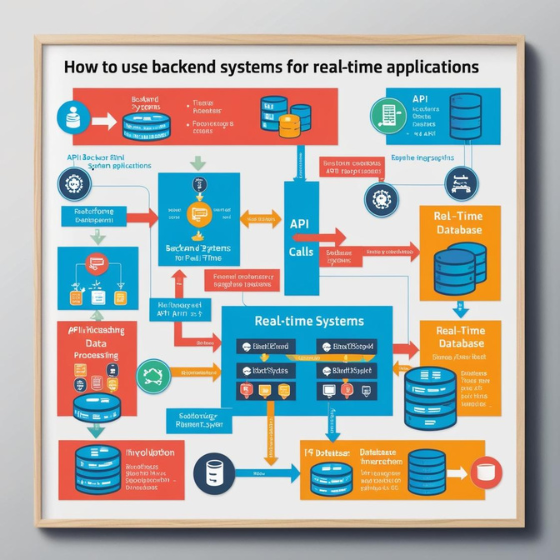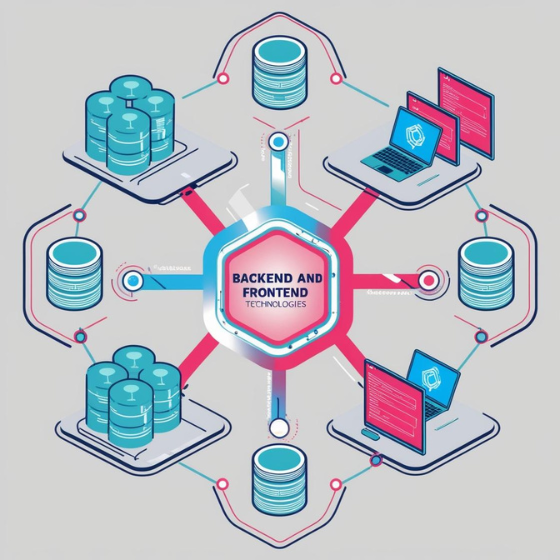Node.js has fundamentally reshaped the landscape of backend development, offering a powerful, scalable, and efficient environment for building web applications. Its non-blocking, event-driven architecture, and extensive ecosystem have made it a popular choice for businesses of all sizes. As we look toward the future, it’s clear that Node.js will continue to play a significant role in business technology. This blog explores the future of Node.js in business, examining its potential developments, benefits, and implications for various industries.
The Evolution of Node.js
Historical Overview
Node.js was first released in 2009 by Ryan Dahl. Initially aimed at providing a non-blocking I/O model, it quickly gained traction for its ability to handle numerous simultaneous connections with minimal overhead. Over the years, Node.js has evolved significantly, incorporating new features, enhancements, and an ever-growing ecosystem of modules and libraries. Major updates and community contributions have solidified its position as a leading choice for modern backend development.
Current State and Recent Developments
As of 2024, Node.js continues to advance with regular updates and improvements. The introduction of features like ES6 support, improved performance, and enhanced security measures has kept Node.js relevant and competitive. The active involvement of the Node.js Foundation and a vibrant open-source community ensure that Node.js remains at the forefront of technological innovation.
Key Trends Shaping the Future of Node.js
Increased Adoption of Microservices Architecture
Microservices architecture is becoming a standard approach for building scalable and maintainable applications. Node.js, with its lightweight and modular nature, is well-suited for this paradigm. Its ability to handle multiple concurrent connections and its support for various communication protocols make it an ideal choice for developing microservices. Businesses adopting microservices can benefit from Node.js’s flexibility, scalability, and ease of integration with other technologies.
Serverless Computing and Edge Computing
Serverless computing and edge computing are emerging trends that promise to revolutionize how applications are built and deployed. Node.js is well-positioned to thrive in these environments due to its lightweight footprint and fast execution times. Serverless platforms like AWS Lambda and Azure Functions support Node.js, enabling businesses to build event-driven applications that scale automatically without managing infrastructure. Similarly, edge computing, which brings computation closer to data sources, can leverage Node.js for low-latency processing and real-time analytics.
Integration with Emerging Technologies
Node.js is increasingly integrating with emerging technologies such as artificial intelligence (AI), machine learning (ML), and blockchain. Its ability to handle asynchronous tasks and its extensive package ecosystem facilitate the development of AI and ML applications, including chatbots, recommendation systems, and data analysis tools. Additionally, Node.js can be used to build blockchain-based applications, leveraging libraries and frameworks for creating decentralized systems and smart contracts.
Benefits of Node.js for Modern Businesses
Enhanced Scalability
One of the primary advantages of Node.js is its scalability. Its event-driven, non-blocking architecture allows it to handle a large number of simultaneous connections with minimal resources. This scalability is crucial for businesses that experience fluctuating traffic patterns or rapid growth. Node.js supports horizontal scaling, where additional servers can be added to distribute the load, ensuring that applications remain responsive and performant under high demand.
Improved Development Speed
Node.js’s unified JavaScript environment streamlines development by allowing developers to use the same language for both client-side and server-side code. This consistency reduces the learning curve and accelerates development cycles. The vast ecosystem of libraries and modules available through NPM (Node Package Manager) further speeds up development by providing pre-built solutions for common tasks, such as authentication, data processing, and API integration.
Cost Efficiency
Node.js can be a cost-effective choice for businesses due to its efficiency and resource management. Its non-blocking I/O model ensures that applications use fewer resources, reducing the need for expensive hardware and infrastructure. Additionally, the ability to write server-side code in JavaScript allows for a more streamlined development process, potentially lowering labor costs associated with hiring and training developers.
Real-World Applications and Case Studies
E-Commerce Platforms
Node.js is increasingly used in e-commerce platforms for its ability to handle high traffic and real-time updates. Its asynchronous nature ensures that users experience fast load times and seamless interactions. Companies like Walmart and eBay use Node.js to power their e-commerce sites, benefiting from its scalability and performance.
Social Media and Messaging Apps
Social media and messaging apps require real-time communication and data synchronization, making Node.js a natural fit. Platforms like LinkedIn and Trello use Node.js to handle their real-time messaging and notification systems. Its ability to manage numerous concurrent connections ensures that users receive timely updates and interactions.
Financial Services and Fintech
In the financial services sector, where performance, security, and scalability are paramount, Node.js provides a reliable solution. Companies in fintech leverage Node.js for building trading platforms, payment gateways, and real-time financial dashboards. Its ability to handle complex data processing and real-time transactions makes it a valuable tool in this industry.
Best Practices for Leveraging Node.js in Business
Security Considerations
Security is a critical concern for any business application. Node.js developers should follow best practices for securing their applications, including input validation, data sanitization, and secure authentication mechanisms. Regular updates and security patches should be applied to Node.js and its dependencies to mitigate vulnerabilities and protect sensitive data.
Performance Optimization
Optimizing performance is essential for maintaining a high-quality user experience. Businesses should employ strategies such as caching, load balancing, and efficient database queries to enhance the performance of their Node.js applications. Profiling and monitoring tools can help identify bottlenecks and areas for improvement.
Continuous Integration and Deployment
Implementing continuous integration (CI) and continuous deployment (CD) practices can streamline development workflows and improve application reliability. Automated testing, code quality checks, and deployment pipelines ensure that changes are thoroughly tested and deployed efficiently, reducing the risk of errors and downtime.
Future Prospects and Innovations
Advancements in Node.js Ecosystem
The Node.js ecosystem is continually evolving, with new libraries, frameworks, and tools being developed regularly. Future advancements may include enhanced support for emerging technologies, improved performance features, and expanded integrations with cloud platforms and serverless environments. Staying updated with the latest developments will be crucial for businesses looking to leverage Node.js effectively.
Community Contributions and Open Source
The vibrant Node.js community plays a significant role in driving its future. Contributions from developers and organizations help shape the platform’s capabilities and address emerging challenges. Open-source projects and collaborative efforts will continue to enhance Node.js’s functionality and ensure its relevance in the ever-changing tech landscape.
Conclusion
The future of Node.js in business is promising, with its robust features, scalability, and efficiency making it a valuable asset for modern applications. As trends like microservices, serverless computing, and emerging technologies continue to evolve, Node.js will adapt and thrive, offering innovative solutions for various industries. By understanding its benefits, applications, and best practices, businesses can harness the power of Node.js to build scalable, high-performance applications that meet the demands of a dynamic market.







